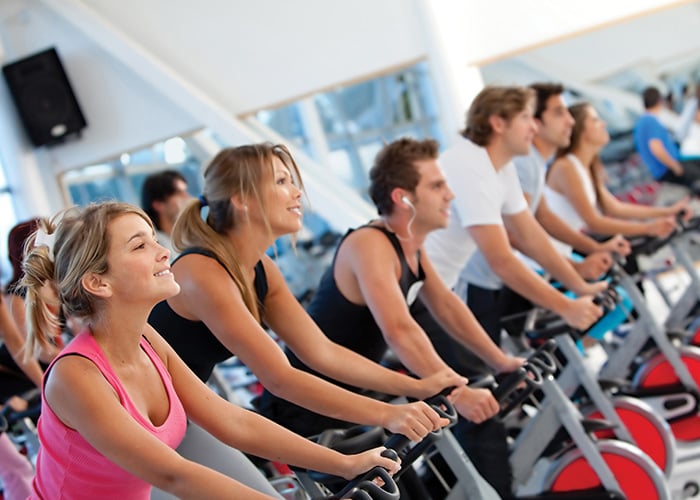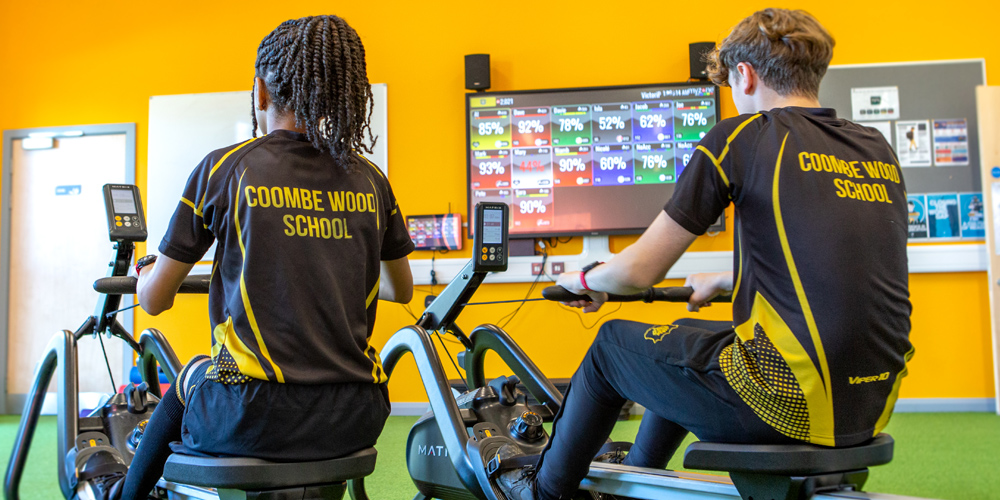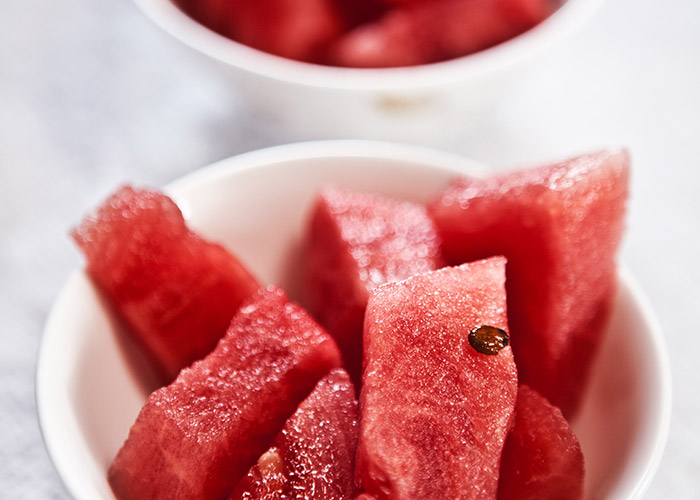Your Heart – The Most Important Muscle of All
Happy Heart Month, everyone! The human heart is the most incredible muscle in the body, beating about 100,000 times to send 3,600 gallons of blood through 75,000 miles of blood vessels each day. Sure, skeletal muscles are vital to our ability to function, but the heart is truly a step above. Our heart is literally designed to make sure it can keep pumping – it has its own set of fail-safe systems in place in case one portion of the heart is unable to function.
Since the heart is so important to our ability to move, to exercise, and to live, we must honor it by treating it well. In this post, we’ll talk about tips on how take care of our hearts. Remember, it’s important to turn healthy behaviors into habits – practice these tips regularly to make them part of your lifestyle.

Exercise
You knew that was coming, didn’t you?! Exercise has numerous benefits, including improving heart health to reduce the risk of heart disease. The American Heart Association (AHA) recommends at least 150 minutes per week of moderate aerobic exercise (blue and green zones with your MyZone heart rate monitor) or 75 minutes per week of vigorous aerobic exercise (yellow and red zones with your MyZone heart rate monitor), or a combination of the two. We can easily meet these goals by exercising for 30 minutes per day, five days per week. To lower the risk for heart attack and stroke, the AHA recommends performing 40 minutes of moderate-to-vigorous aerobic exercise three to four times a week.
Examples of aerobic exercise include running, rowing, cycling, swimming, walking, hiking, and dancing. Use your MYZONE heart rate monitor to gauge the intensity to ensure that you’re following the recommendations for heart health.

Choose a Healthy Nutrition Routine
Here are some specific recommendations on eating for a healthy cardiovascular system:
Control Your Portion Sizes.
Fill the majority of your plate with colorful nutrient-rich, low-calorie foods, such as fruits and vegetables.
Be realistic about how much food you’ll actually need to feel full – our eyes can get the best of us, especially when we’re at a buffet or when we’re using larger plates. You probably don’t need as much as your eyes tell you.
Load Up on Vegetables and Fruits.
Just be sure to limit the ones that are fried, covered in thick sauces, or canned in heavy syrups.
Select Whole, Fiber-Rich Grains.
Examples include whole-wheat or whole-grain bread, brown rice, oatmeal, barley, and buckwheat.
A simple rule is to look for “whole” as the first word on the ingredients list. Even food items labeled as “wheat” may not be “whole wheat” unless designated as such.
Limit Your Sodium Intake.
Excess sodium contributes to high blood pressure, a risk factor for cardiovascular disease. The AHA recommends a goal of 1,500 mg of sodium per day or less. Packaged and processed food may have surprisingly high sodium content, so make sure most of your food is fresh and unprocessed.
Limit Unhealthy Fats.
Saturated and trans fats can raise your low-density lipoprotein (LDL) cholesterol and increase your risk of heart disease. To avoid these fats, limit your intake of pastries, red meat, processed meats, and fried foods.
Trade these for monounsaturated and polyunsaturated fats, found in such foods as olive oil, avocado, almonds, cashews, salmon, and anchovies.

Quit Smoking
According to the AHA, smoking and secondhand smoke play a role in nearly 1/3 of deaths from coronary artery disease. Smoking damages the lining of our arteries, increases LDL cholesterol, decreases HDL cholesterol, raises blood pressure, and speeds up the development of atherosclerosis (hardening and narrowing of our arteries). Not only will the effects of smoking impact your heart health, but they will also make it more difficult for you to exercise to the best of your ability. You may not be able to stop smoking immediately, but it is a perfect goal for 2016.

Laugh More
It seems that there’s something to the age-old saying, “Laughter is the best medicine.” Research has demonstrated that laughter has an immediate effect as a vasodilator, causing your blood vessels to dilate and decreasing blood pressure. Laughter is also linked to decreased inflammation, increased high-density lipoprotein (HDL) cholesterol, and decreased stress hormones. While wearing your MYZONE belt, check out what a good belly laugh does to your heart rate!

Maintain Positive Relationships
Studies have demonstrated that people with strong social ties tend to live longer, healthier lives than those without social connections. Furthermore, those who are less lonely tend to have lower blood pressure, which can impact the health of your heart. Invite a buddy to your next workout and stay connected via MYZONE Connections to get in some healthy social time!

Minimize Stress
Stress can wreak havoc on our bodies by increasing blood pressure, damaging our arteries, raising our cholesterol, and putting us at risk of coronary artery disease. It also weakens our immune system and makes us more likely to engage in unhealthy behaviors, such as overeating and cigarette smoking.
Some stress-fighting activities include exercising, meditating, sleeping, laughing, unplugging from technology to relax, and enjoying good conversation with friends.
We want to know how you’re taking care of your heart this month! Use the hashtags #myzonemoves #effortrewarded and #hearthealth when you post to Facebook, Instagram and Twitter!
Share this
You May Also Like
These Related Stories

Part I: High Blood Pressure - What Does It Mean for Your Health?

Myzone: Fueling Your Exercise



